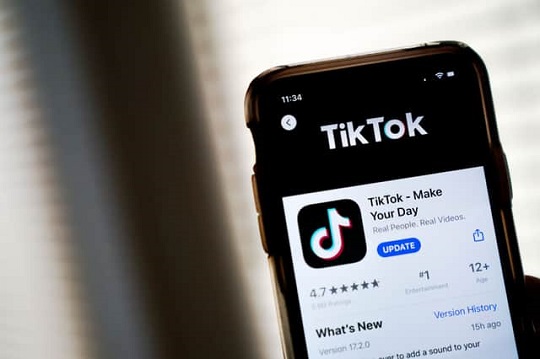TikTok is to set a default 60-minute daily time limit for all accounts held by under-18s and is developing a tool to allow parents to prevent their children from viewing content containing certain words or hashtags as the company looks to shore up its public image.
The changes come amid growing concerns among different governments around the world about the app’s security, and ability to alter its algorithm to push certain posts.
The screen limit update, announced on Wednesday, mirrors gaming rules imposed on young people in China, where TikTok’s parent company ByteDance was based before it moved to Singapore. In 2021, Chinese authorities issued new rules limiting the amount of time that minors could play online games to only an hour a day and only on Fridays, weekends and public holidays – an effort to curb internet addiction.
In the United States, families have struggled with limiting the amount of time their children spend on the Chinese-owned video-sharing app. According to the Pew Research Center, about two-thirds of American teens use TikTok.
Cormac Keenan, head of trust and safety at TikTok, said in a blog post on Wednesday that when the 60-minute limit is reached, children and teenagers will be prompted to enter a passcode and make an “active decision” to keep watching. For accounts where the user is under the age of 13, a parent or guardian will have to set or enter an existing passcode to allow 30 minutes of extra viewing time once the initial 60-minute limit is reached.
TikTok said it came up with the 60-minute threshold by consulting academic research and experts from the Digital Wellness Lab at Boston Children’s Hospital.
It said the parental control feature, which is in the early stages, would be developed and designed in consultation with parenting, youth and civil society organisations to design the tool.
There have long been concerns about what young people are exposed to on social media and the potential harm it might do. A report released late last year suggested that TikTok’s algorithms are promoting videos about self-harm and eating disorders to vulnerable teens. Instagram, which is owned by Facebook parent Meta, has also faced similar accusations.
Social media algorithms work by identifying topics and content of interest to a user, who is then sent more of the same as a way to maximise their time on the site. But social media critics say the same algorithms that promote content about a particular sports team, hobby or dance craze can send users down a rabbit hole of harmful content.
User limits
TikTok also said on Wednesday that it will begin prompting teens to set a daily screen time limit if they opt out of the 60-minute default. The company will send weekly inbox notifications to their accounts with a screen time recap.
Some of TikTok’s existing safety features for teen accounts include having accounts set to private by default for those between the ages of 13 and 15 and only providing direct messaging to accounts where the user is at least 16 years old.
TikTok announced a number of changes for all users, including the ability to set customised screen time limits for each day of the week and allowing users to set a schedule to mute notifications.
The company is also launching a sleep reminder to help people plan when they want to be offline at night. For the sleep feature, users will be able to set a time and when the time arrives, a pop-up will remind the user that it’s time to log off.
Beyond the potentially excessive use by some young people, there is growing concern about the app and its proximity to the Chinese government around the world. The European Parliament, the European Commission and the Council of the European Union have banned TikTok from being installed on official devices.
That follows similar actions taken by the US federal government, Congress and more than half the 50 states that make up the United States. Canada has also banned TikTok from government devices.
US House Republicans are pushing a bill that will give President Joe Biden the ability to ban the app nationwide, which has faced opposition from some civil liberties organisations who argue that such a move would be unconstitutional.
The legislation passed the Republican-controlled House Foreign Affairs Committee on Wednesday along party lines. The bill must still get a vote on the floor of the House and Senate.
Source: news agencies





